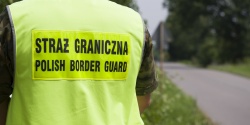Published: 26.11.2021

· There is an ongoing migration crisis on the Polish-Belarusian border.
· The Belarusian authorities are actively involved in organising the increased migration wave and helping migrants to cross its territory to the border with Poland.
· The Ordo Iuris Institute organised an international seminar devoted to this problem.
· The event was attended by representatives of state authorities and experts in international law from Poland and abroad.
· During the seminar, the legal consequences of the conflict were discussed, as well as experiences of other countries in the field of migration policy.
‘Deliberately procured migration leads directly to a threat to the humanitarian situation and seriously endangers instrumentalised groups. At the same time, the aim of such action is the internal and external destabilisation of the state that becomes a victim of migration. Therefore, the intention of the perpetrator state is to threaten international peace and security’, Attorney Jerzy Kwaśniewski, President of Ordo Iuris, commented on the case.
The starting point for the discussion was the book ‘Weapons of mass migration: forced displacement, coercion and foreign policy’. The publication by American political scientist Kelly Greenhill is the first systematic study of the phenomenon of mass migration as an instrument of state policy.
Poland is currently dealing with this problem. It seems that we are dealing with procured migrations, defined by the author as ‘the manipulation of population movements as an operational and strategic means of achieving political and military objectives’. They cause not only humanitarian and political but also legal problems. The speakers analysed the question of Poland’s obligations, as a state party to the Convention Relating to the Status of Refugees drawn up in Geneva on 28 July 1951, in relation to the current situation on the border. It obliges the signatories to make every effort to ensure the widest possible exercise of fundamental rights and freedoms. The speakers sought an answer to the question whether procured migration entitles Poland to temporarily suspend the application of its Convention obligations.
The seminar was attended by representatives of the authorities – Piotr Wymysłowski from the Migrants’ Rights Department at the Ombudsman for Migrants, and Dr Bartłomiej Wróblewski, Member of the Polish Parliament. Dr Wojciech Szewko, an expert in international relations, also took part. The Ordo Iuris Institute was represented by its President, Jerzy Kwaśniewski, and the Director of the International Law Centre, Weronika Przebierała. Margherita Saltini from the Italian organisation Nazione Futura, and István Kovacs – Strategic Director of the Hungarian Centre for Fundamental Rights, talked about their countries’ experiences in fighting illegal migration.
‘Lukashenka's goal, aimed at Poland and Lithuania, i.e. the two basic enemies of Belarus, is to isolate these countries, worsen their opinion and position in the international environment, and weaken their ability to form a coalition against the Belarusian regime', Dr Wojciech Szewko pointed out.

16.05.2025
On 13 May 2025, James Daniel Jordan, Chairman of the Judiciary Committee of the United States House of Representatives, together with four other members of the Committee, addressed a letter to Michael McGrath, European Commissioner for democracy, justice and the rule of law. The letter inquires how the European Union intends to respond to the actions of Donald Tusk’s government.

07.05.2025
• The European Court of Human Rights has upheld a complaint by a same-sex couple whose Polish registry office refused to register a marriage contracted in the United Kingdom. This is the fourth judgment in which the ECHR indicates that Poland has an obligation to ensure that same-sex couples can formalize their cohabitation.

• Representatives of Ordo Iuris took part in the second round of consultations ahead of the 58th Session of the UN Commission on Population and Development (CPD58) on global health policy.

07.04.2025
In response to the liberal left’s self-proclaimed “militant democracy” in Poland and